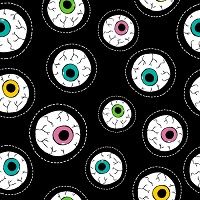Tocilizumab Effective for Uveitis in Juvenile Idiopathic Arthritis
Most patients with severe refractory juvenile ideiopathic arthritis-associated uveitis may get complete remission after six months of treatment with tocilizumab (Actemra/Roche.)

Most patients with severe refractory juvenile ideiopathic arthritis-associated uveitis may get complete remission after six months of treatment with tocilizumab (Actemra/Roche), a research team in Spain reported.
To determine the effectiveness of the drug in treating uveitis associated with juvenile idiopathic arthritis (JIA), the team did a multicenter study of patients whose JIA-associated uveitis was refractory to conventional immunosuppressants and anti-tumor necrosis factor-α (TNF-α) agents. The team was led by Vanesa Calvo-Rio, MD, PhD, and Montserrat Santos-Gomez, MD, both of the University of Cantabiria, Santander, Spain.
The study population used included 21 women and 4 men; its mean age was 19 years. They had previously received corticosteroids, conventional immunosuppressants, and a median of two biologic agents, most frequently adalimumab (Humira/Abbvie) (in 24). Other biologics used included etanercept (Enbrel/Amgen), infliximab (Remicade/Janssen), abatacept (Orencia/Bristol Myers-Squibb), rituximab (Rituxan/Roche), anakinra (Kineret/Sobi), and golimumab (Simponi/Janssen).
In the patients treated with tocilizumab, best-corrected visual acuity increased 13% and central macular thickness decreased 35%. Improvement in vision persisted after one year, and complete remission occurred in 76% of patients.
In 22 of the 47 affected eyes, uveitis was bilateral. Nine patients also had cystic macular edema. Eyes showed a wide range of ocular sequelae of JIA-associated uveitis, including band keratopathy (12), cataract (13), glaucoma (7), and synechiae (10). Maculopathy (9) and amblyopia (5) were also reported.
In most cases, 8 mg/kg of Actemra were given intravenously every 4 weeks. After Actemra therapy, all ocular parameters rapidly improved. After six months of Actemra, best-corrected visual acuity increased from 0.56 to 0.64 (P < 0.01). In addition, central macular thickness measurements by optical coherence tomography (OCT) showed that edema decreased from approximately 400 μm to 260 μm (P = 0.012). Also, nearly 80% of patients showed an improvement in the number of anterior chamber cells after 6 months of therapy, and nearly 90% showed such an improvement at 1 year.
Improvement in vision was found to have persisted after a median of 1 year of follow-up. Complete remission of uveitis occurred in 19 of 25 patients, or 76%. Moreover, patients were able to achieve a substantial reduction in prednisone dose.
Reported adverse effects include severe autoimmune thrombocytopenia, bullous impetigo, and viral conjunctivitis. Pneumonia, then autoimmune anemia and thrombocytopenia, were also reported.
As a result of the study findings, the team concluded, “Tocilizumab appears to be a useful therapy in severe refractory JIA-associated uveitis.”
Related Coverage:
Uveitis: Pediatric Patients Did Fine on Adalimumab
Immunosuppressants Help Extend Treatment Effect in Uveitis
Adalimumab: Efficacy and Adverse Effects for Patients with Active Noninfectious Uveitis